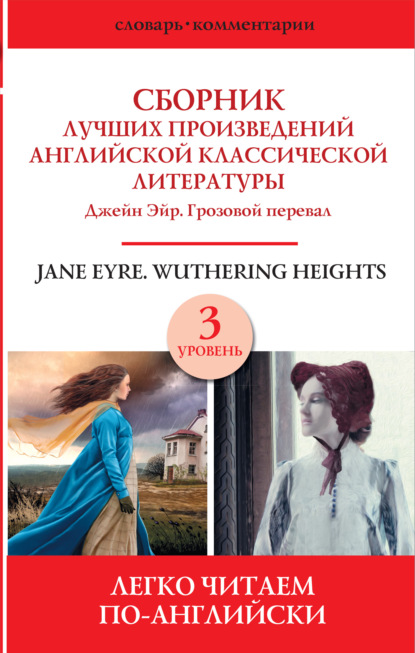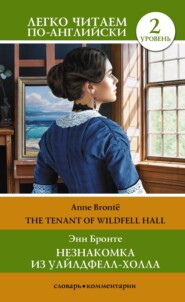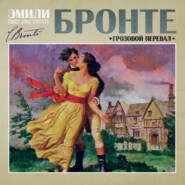По всем вопросам обращайтесь на: info@litportal.ru
(©) 2003-2025.
✖
Сборник лучших произведений английской классической литературы. Уровень 3
Настройки чтения
Размер шрифта
Высота строк
Поля
“With whom?”
“With master-Mr. Rochester-he is just arrived.”
“Oh! and is Mrs. Fairfax with him?”
“Yes, and Miss Adèle. They are in the dining-room. But the master has had an accident. His horse fell and his ankle is sprained.”
“Did the horse fall on the road to Hay?”
“Yes, it slipped on some ice.”
“Ah! Bring me a candle, will you Leah?”
Leah brought it. When she returned, Mrs. Fairfax entered the room with her and repeated the news. The surgeon had arrived and was now with Mr. Rochester. Then she hurried out to give orders about tea, and I went upstairs to take off my things.
Chapter 14
Mr. Rochester, it seems, by the surgeon's orders, went to bed early that night. Did he rise soon next morning. Adèle and I had now to vacate the library. Mr. Rochester needed it as a reception-room for visitors.
Adèle was not easy to teach that day. The doorbell rang constantly all day as various visitors arrived. My pupil kept running to the top of the bannisters to see if she could get a glimpse of Mr. Rochester. She invented pretexts to go downstairs in order to visit the library, where she was not wanted. Even when I got a little angry and made her sit still, she continued to talk of her dear friend Mr. Rochester and the presents he must have brought for her. “And yesterday he asked me a lot about you, Mademoiselle,” she added in French: “He must have a present for you, too.”
At dark I allowed Adele to put away books and work, and to run downstairs. It had been silent there and I thought that Mr. Rochester was no longer busy.
Mrs. Fairfax came in. “Mr. Rochester would like you and your pupil to take tea with him in the drawing-room this evening,” she said: “he has been so busy all day that he could not ask to see you before.”
“When does he expect us?”
“Oh, at six o'clock. You had better change your frock now.”
“Is it necessary to change my frock?”
“Yes, you had better: I always dress for the evening when Mr. Rochester is here.”
She came with me to my room and helped me to put on my black silk dress.
“You want a brooch,” said Mrs. Fairfax. I had a little pearl ornament, which Miss Temple gave me as a parting keepsake. I put it on, and then we went downstairs.
Mr. Rochester was resting on a sofa, with his bad foot raised up on a cushion, while Adèle played with Pilot by the fire.
“Here is Miss Eyre, sir,” said Mrs. Fairfax, in her quiet way. He bowed, still not taking his eyes from the group of the dog and child. While Mrs. Fairfax fetched the tea, I sat down, feeling just as I had before-that his lack of courtesy made things easier for me. It meant that I felt no obligation to be polite.
“Did you bring Miss Eyre a present?” Adèle asked suddenly, running over to Mr. Rochester.
Mr. Rochester raised his eyebrows, and turned to me. “Did you expect a present, Miss Eyre? Are you fond of presents?” he asked searching my face with eyes that I saw were dark and piercing.
“I hardly know, sir. I have little experience of them. They are generally thought pleasant things.”
“But what do YOU think?”
“A present has many faces to it, has it not? and one should consider all, before pronouncing an opinion.”
“Miss Eyre, you are not so unsophisticated as Adèle. The moment she sees me, she demands presents.”
“I have less confidence in my deserts than Adèle has. If I had to make out a case I should be puzzled, since I am a stranger and have done nothing worth of acknowledgement.”
“That's not true at all,” he replied. “I can see what good work you have done with Adèle. She is not bright, she has no talents; yet in a short time she has made much progress.”
“Sir, you have now given me my present, as this praise is the best present you could ever give a teacher,” I said.
Mr. Rochester grunted, and took his cup of tea from Mrs. Fairfax.
“You have been here how long?”
“Three months, sir.”
“And you came from —?”
“From Lowood school, in – shire.”
“How long were you there?”
“Eight years.”
“Eight years! No wonder you have rather the look of another world. When I saw you last night, I thought of fairy tales. I decided you had bewitched my horse. I am not sure yet. Who are your parents?”
“I have none.”
“So when you standing there, you were waiting for your real family, the elves and the fairies.”
I shook my head. “The men in green all left England a hundred years ago,” said I, speaking as seriously as he had done.
Mrs. Fairfax had dropped her knitting, and, with raised eyebrows, tried to understand what sort of talk this was.
“Who recommended you to come here?”
“I advertised, and Mrs. Fairfax answered my advertisement.”
“Yes,” said the good lady, who now knew what we were talking about, “and I am daily thankful for the choice Providence let me make. Miss Eyre has been an invaluable companion to me, and a kind teacher to Adèle.”
“I will judge for myself. First of all, I have to thank her for this sprain.”
Mrs. Fairfax wanted to object, but Mr. Rochester did not let her do it. He interrogated me about Lowood and things I had been taught there. He asked me to go to the piano in the library and play a tune there. “You play rather better than some school-girls but not well,” was his judgement. “Adèle showed me some sketches this morning, which she said were yours. Has any master helped you?”
“No, indeed!”
“Ah! that pricks pride.” He wanted to see more works. I brought the portfolio from the library. He deliberately scrutinised each sketch and painting.
“Were you happy when you painted these pictures?”

















